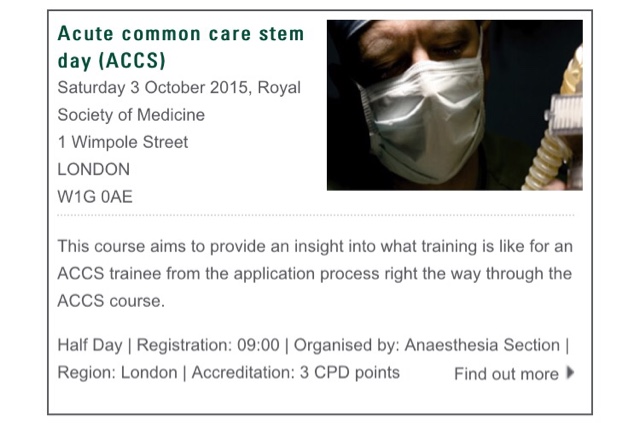It's been quite surprising to see how few Foundation trainees are choosing to proceed directly onto speciality training and I've wanted to try and get a handle on this for a while. This week in theatres I was joined by Dr Sinthuja Visahan who is working as a locum with us in T&O. Sinthu is contemplating a career in Pathology and will be applying for run-through training later this year. I was interested to hear her perspective on the preparation med school gives you for making career choices
"After completing my FY1 year, I wasn’t sure on which training programme to apply for and still felt that I had only been exposed to a limited amount of specialities. I personally feel the recruitment process for speciality training can be rigid and rushed although I do appreciate that some people know quite early on which career they wish to go onto. I also feel that once a you do choose a speciality, focusing on career goals do outweigh things you may really love to do in your life such as travel/spend time working abroad which is something I aim to do towards the end of the year and this seems to be the case for many of my friends taking a year out post foundation years.
"I feel taking a year out (depending on the specialty you wish to apply for) can be very beneficial in furthering your knowledge, experience or even just having some time out to enjoy life a little!"
Sinthu's not alone in wanting to take time to get work into perspective. We are facing a workforce crisis as junior doctors vote with their feet
A policy I find quite harsh is the effective 'banishment' of trainees if they change their minds about career commitment. Turning down for example ACCS or GPST because you need time to reassess or there's been a change in circumstances comes with the awful warning that you can Never Come Back.
I hugely benefitted making up my own Basic Surgical Rotation. After house jobs I did 6/12 posts in A&E, T&O, Urology, Vascular, Breast & Endocrine, Colorectal, ITU and back where I started, with T&O again. I am grateful for the experiences in every single post and would absolutely do it all again.
Now, it seems like a race. Core training applies an enormous amount of pressure to achieve a ton of targets in the two years. If MRCS isn't achieved early, or before you start, it becomes an additional mountain to the two closed loop audits, the 300-odd logbook numbers, the 80+ WBAs, case reports and projects - there is no time to enjoy the job. No time to test the water and see if this or that speciality is The One. I do feel sad about that.
With limited exposure to the different specialities in medical school (did you know, for example, there are 68 different hospital-based specialities?), a year of Foundation training where you are supernumerary, making a life-changing career application just weeks into your second year with the threat that if you make the wrong commitment and leave you can never return, it is no wonder that junior doctors are bailing after FY2. It's more surprising to me that so many stay.
Surgeon of the Week
A true educational Titan here (I feel a fanfare of trumpets is appropriate at this point) - this week it's Foundation Programme Director and Breast Surgeon Mr Tayo Johnson. Here he is with Sr Rekha Menon:
Tayo is fiercely protective of all his Foundation trainees, making sure @ASPHFT is doing its bit to support them through these two years. He is a stalwart of the Surgical Local Faculty Group where his incisive analysis cuts to the chase. And his laugh- he has a laugh that can shake the building.
Forthcoming Attractions
On the theme of exploring career options, I found these 'taster' courses at the Royal Society of Medicine @RoySocMed
And in the spirit of learning for pleasure, here's a free experience at the Royal College of Physicians @RCPLondon










No comments:
Post a Comment